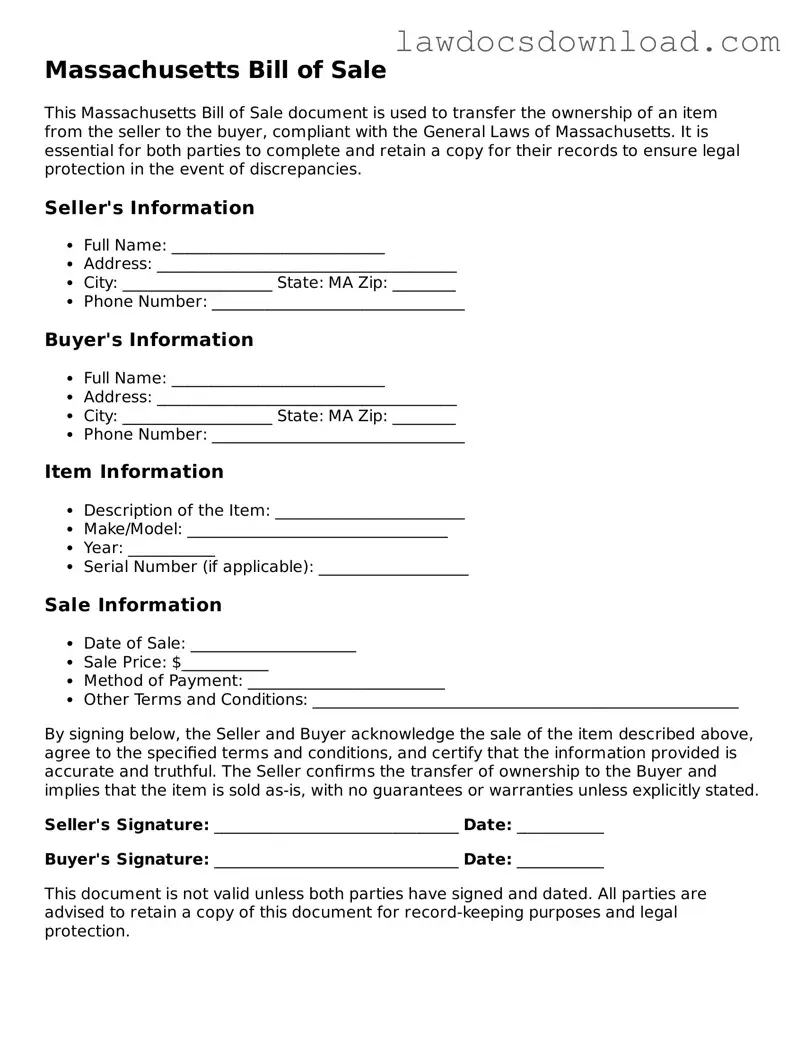When completing the Massachusetts Bill of Sale form, a common mistake is not providing a complete description of the item being sold. This description should include make, model, year, and any other details that uniquely identify the item. A lack of detail can lead to confusion about what exactly was sold, which can be problematic in disputes or for record-keeping purposes.
Another error frequently made is forgetting to denote the sale date. This date is crucial because it marks the official transfer of ownership. Without it, the legality of the sale can be questioned, and buyers or sellers may face difficulties when trying to prove or dispute ownership.
Moreover, people often neglect to include the sale price on the form. Stating the sale price is not just a formal requirement; it's essential for tax reasons and for future reference, should any contention regarding the transaction arise. Omitting this information can lead to challenges in establishing the terms of the sale.
Some individuals fail to obtain signatures from both the buyer and the seller. Signatures are vital as they formally bind both parties to the agreement, ensuring that both acknowledge and accept the terms of the sale. Without these signatures, the document may not be considered legally valid, undermining its purpose.
Leaving out pertinent personal information is another common mistake. The bill of sale should include full names, addresses, and contact information for both parties. This omission can hinder the process of legal or official communication following the sale and may complicate the transfer of ownership or registration processes.
A significant number of people mistakenly use an incorrect form, not realizing that the Massachusetts Bill of Sale form might have specific requirements or formats depending on the type of item being sold, such as a vehicle, boat, or general property. Using the wrong form can render the document invalid.
Not specifying the condition of the item sold is a frequently overlooked detail. Whether the item is new, used, or being sold "as is," should be clearly indicated to avoid future disputes regarding expectations about the item's condition.
Many individuals forget to check for required notarization. In some cases, Massachusetts may require a bill of sale to be notarized for it to be legally binding. Not knowing when this step is necessary can lead to complications in validating the sale.
Incorrectly assuming that a bill of sale alone is enough for transferring a vehicle’s title is a mistake. In most cases, additional documents and steps are required by the state. This assumption can delay the process, especially for vehicle sales, where title transfer procedures are strict.
Finally, failing to provide a copy of the bill of sale to both the buyer and the seller is a frequently overlooked step. Each party should have a copy for their records. Not doing so can lead to difficulties in proving the terms of the agreement, should any legal issues arise.

